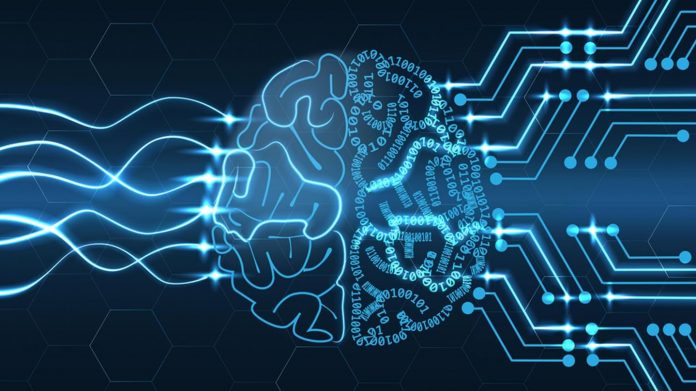This article is written by Chaithra Lakshminarayan, pursuing a Diploma in Advanced Contract Drafting, Negotiation, and Dispute Resolution from Lawsikho.
Table of Contents
Introduction
Artificial intelligence (for brevity, “AI”) refers to machines that imitate human intelligence to do certain tasks. AI beholds the intelligence to improve themselves based on the data they collect. In this millennium, where start-ups are transforming business culture and AI has been assisting them to bring in vital changes through chatbots, butterfly buttons in digital marketing, blockchain technology in the transaction world and so on and so forth. It is just not in the business sector but also in the field of law, AI has been bringing multiple changes. AI is now helping businesses to overcome hurdles in contracting. AI is being programmed to think, learn, reason, experience and function autonomously, without supervision. By deploying AI in business, without a proper plan there are all possibilities for it to go negative and reduce human resources in business which can affect the work environment and also the psychological contracts that are already in existence between employer-employees.
In this article, the readers would learn more about what AI is all about? The importance of AI in the business sector. In addition, the use of AI in contract law, the author would also explain the meaning of psychological contracts, the importance of psychological contracts and the impact of AI in psychological contracts.
Artificial intelligence in the business sector
Before we dive into the concept of AI in the business sector. It is important to understand why companies should use AI? In this 21st century although human resource still dominates the world the complexity involved in tasks has grown many folds. It is just not that the extent of stress and account of inefficiency has equally grown too. This is just because the extent of data we hold has increased. It is now not humanly possible to maintain the data securely and attend to every detail of demand that is created in the market. This is where the concept of AI comes in. Using AI in the business sector, companies can now understand and develop unique deliverables and sustain stable growth by reducing operational expenses. The benefits of AI in business include automation of every process, increased revenue, positive results in marketing activities, companies can understand client requirements and cater to their demand, fraud detection, and companies are able to provide improved and more reliable service.
Artificial intelligence in contracts
Contracting although a common activity every company enters into it is one that every company aims to do uniquely, efficiently, or effectively. In fact, it is estimated that contracts that are not up to the mark cause firms to lose five percent to forty percent of value on a given deal depending on the situation. Now, technological developments like AI are helping companies overcome many hurdles in contracting. The main challenge the companies face in contracting arises from the fact that they are asked to maintain or keep a record of multiple contracts. It is just not that companies find it difficult to organize, manage, update, and maintain uniformity in record keeping. In common, most companies do not have a database to manage. Even if they do have one it takes a lot of human resources to draft, execute, review, revise and improve not only the contracts but also the contracting processes. For instance, a large scale technological company may find it difficult to maintain the volume of procurement contracts alone that may have different renewal dates and renegotiation terms, it would require a lot of labour and teamwork to review and track all the data and to keep track of it to avoid missing out on renewal or opportunity.
What is a psychological contract?
Unlike a formal and codified contract like an employment contract, psychological contracts are an unwritten set of expectations of employment relations. Both the employment contract and psychological contract define the employer-employee relationship. Psychological contracts do evolve and develop constantly over a period of time-based on communication or may change based on lack of communication, between an employer and employee.
A psychological contract concentrates more on the social relationship between employer and employee. One can say, the psychological contracts concentrate more on the social relationship between employer and employees. Rousseau notes that “a psychological contract is an individual’s belief in mutual obligations between that person and another party, such an employer”.
In addition, psychological contracts are ones entered in the initial stage of employment. During the recruitment process, two-way communication occurs through mutual promises and impacts the psychological contract. Further, trust is the key to a psychological contract. So a psychological contract is breached once the trust is broken and the employee thinks that the employer has not stuck to what was promised or vice versa.
There are two types of psychological contracts, which are relational contracts and transactional contracts. Relational contracts are one that can generate feelings of involvement and closeness in the employee and may make the employer commit to the employee indirectly by providing salary with benefits, effective training, and job security. In a transactional contract, monetary value is given importance. Further, in this kind of contract, a sense of involvement in raising income is developed among employees. Furthermore, the employees would have greater concern for remuneration and benefits than for contribution to the organization.
Impact of AI in the psychological contract
AI is considered to affect work and workers. For instance, Huang and Rust (2018) identify four ways of work-related intelligence and analyze how an AI may be more or less suited to replace human beings in related work. Firstly, mechanical intelligence speaks more about the ability to perform routine or repetitive tasks. Secondly, analytical intelligence is more about the ability to process information through problem-solving and learn from it. Thirdly, intuitive intelligence is the ability to think creatively. Lastly, empathetic intelligence, which is the ability to recognize and understand other people’s emotions. On the deployment of AI, there are all possibilities that AI may replace the workforce in tasks that are associated with mechanical and analytical intelligence and may have limited potential in tasks that require intuitive or empathetic intelligence. The adoption of AI weakens the relationship between employee’s job engagement and job trust. However, the pressure to use AI has increased whether it is due to increased levels of competition, consumer preferences, or regulatory requirements. But many studies reveal that workers need to develop positivity while working with AI technology in order to exploit the benefits. Before engaging AI, the company should prepare for the fall before, during, and after engaging AI in their business. Just not that the company needs to prepare the workers through effective communications. In addition, the psychology of each employee varies which needs to also be taken into consideration.
The psychology of a beginner is more concerned with the work and themselves. But an employee with two years of experience may have more expectations and have more needs when compared to a beginner. Married women on the other hand will be more towards planning life with kids and may choose work or plan work accordingly. While an employee nearing retirement may think more about family needs and plan for life after retirement. Therefore, a company while engaging employees and before deploying AI has to consider the kind of human resource the company holds and decide accordingly.
Furthermore, the organization’s expectations change over time and also constantly. For instance, an organization’s expectation varies from what was stated on paper. In the case of Apple, the organization does not want its employees to go on the website or any public domain and comment about Samsung in such a way that might promote Samsung’s business. In addition, Apple expects employees to promote its business even in the employee’s social gathering and even while the employees are with family members. However, these terms are not included in the formal employment contract. These may vary on the adoption of AI as the technologies like AI may replace human resources and may also take up the marketing sphere of a company.
Conclusion
Hence, from the above explanation, we can understand what AI is all about. Its importance and relevance in this generation. Use of AI in business and how businesses are adopting AI. The meaning and importance of psychological contracts. Impact of psychological contracts in this era and the impact of AI in psychological contracts.
References
- What is AI? Learn about Artificial Intelligence, https://www.oracle.com/artificial-intelligence/what-is-ai/
- What is Artificial Intelligence (AI) in Business? https://www.businessworldit.com/ai/artificial-intelligence-in-business/
- How AI is Changing Contracts, https://hbr.org/2018/02/how-ai-is-changing-contracts
- What is a Psychological Contract, https://www.hrzone.com/hr-glossary/what-is-a-psychological-contract
- Psychological contracts: Effectiveness, implementation, and consequences of breaching them, https://www.ckju.net/en/dossier/psychological-contracts-effectiveness-implementation-consequences-breaching-them
- Ashley Braganza, Weifeng Chen, Ana Canhoto, Serap Sap, Productive employment and decent work: the impact of AI adoption on psychological contracts, job engagement, and employee trust, file:///C:/Users/chaithra.l/Downloads/Braganza2020.pdf
- Psychological Contracts, https://writepass.com/journal/2016/10/psychological-contracts/
- James A. Crowder, Artificial Psychology: The Psychology of AI, http://www.iiisci.org/journal/CV$/sci/pdfs/iZA532FA.pdf
- Psychological Contract: What it is, Characteristics and Types with Examples, https://www.transkerja.com/2020/11/psychological-contract-what-it-is-characteristics-and-types-with-examples.html
Students of Lawsikho courses regularly produce writing assignments and work on practical exercises as a part of their coursework and develop themselves in real-life practical skills.
LawSikho has created a telegram group for exchanging legal knowledge, referrals, and various opportunities. You can click on this link and join:
 Serato DJ Crack 2025Serato DJ PRO Crack
Serato DJ Crack 2025Serato DJ PRO Crack











 Allow notifications
Allow notifications


